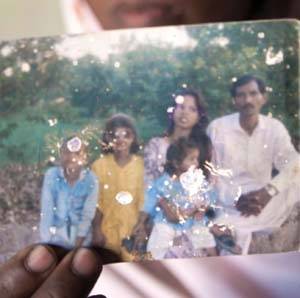Last Friday, a Greek court sentenced Filippos Loizos to 10 months imprisonment for “malicious blasphemy”. Loizos was arrested in September 2012 for hosting a satirical Facebook page, which depicted a popular Greek Orthodox authority Elder Paisios, as ‘Elder Pastitsios’ – an imaginary monk with a traditional Greek pasta dish on his face. His page also featured critical comments about the Orthodox Church, and questioned Elder Paisios’s miracle works.
Loizos’s case was brought to the attention of the Greek Parliament in 2012 by Christos Pappas, an MP of the far-right Golden Dawn Party. He said that the Facebook satire "taunts, mocks and tries to humiliate a sacred figure of Greek Orthodoxy,” and demanded immediate action to be taken against Loizos. Pappas himself was detained in September last year after the Greek government’s crackdown on Golden Dawn, and is currently awaiting trial on charges of belonging to a criminal organisation.
When Loizos was first arrested in 2012, thousands took to social media to protest the far-right MP’s targeting of the pasta satirist. Last week’s sentencing again generated a fiery Twitter response, with people tweeting their support and outrage under hashtag #FreeGeronPastitsios. Many expressed anger that in the country that prides itself as being the cradle of democracy, not only can satirising a public figure lead to a jail sentence, but also that this punishment is still allowed by the Greek law. The Article 199 of the Greek Penal Code states:
“One who publicly and maliciously and by any means blasphemes the Greek Orthodox Church or any other religion tolerable in Greece shall be punished by imprisonment for not more than two years."
Blasphemy accusations rarely lead to court cases in Greece, but with the recent tough economic times, especially before the crackdown on Golden Dawn, the country has seen a rise in conservative ideas and far-right thinking. In 2012, blasphemy charges were also brought against three actors starring in the play Corpus Christi, which depicts the life of Jesus and his apostles as gay men in Texas. The play was eventually cancelled after protests organised by reactionary Orthodox groups (including priests) and Golden Dawn members. The demonstrations outside the theatre in Athens lasted weeks, and the protesters reportedly threw rocks at the actors and audience members.
Loizos has appealed against Friday’s ruling and his lawyer, Yorgos Kleftodimos, said that he would not be jailed before a higher court hears his case. "He was merely satirising in a country that gave birth to satire," Kleftodimos said. "Never and by no means did he insult the Orthodox church."
You can read more about the Greek blasphemy laws in the Greece article of our World of Blasphemy series.

